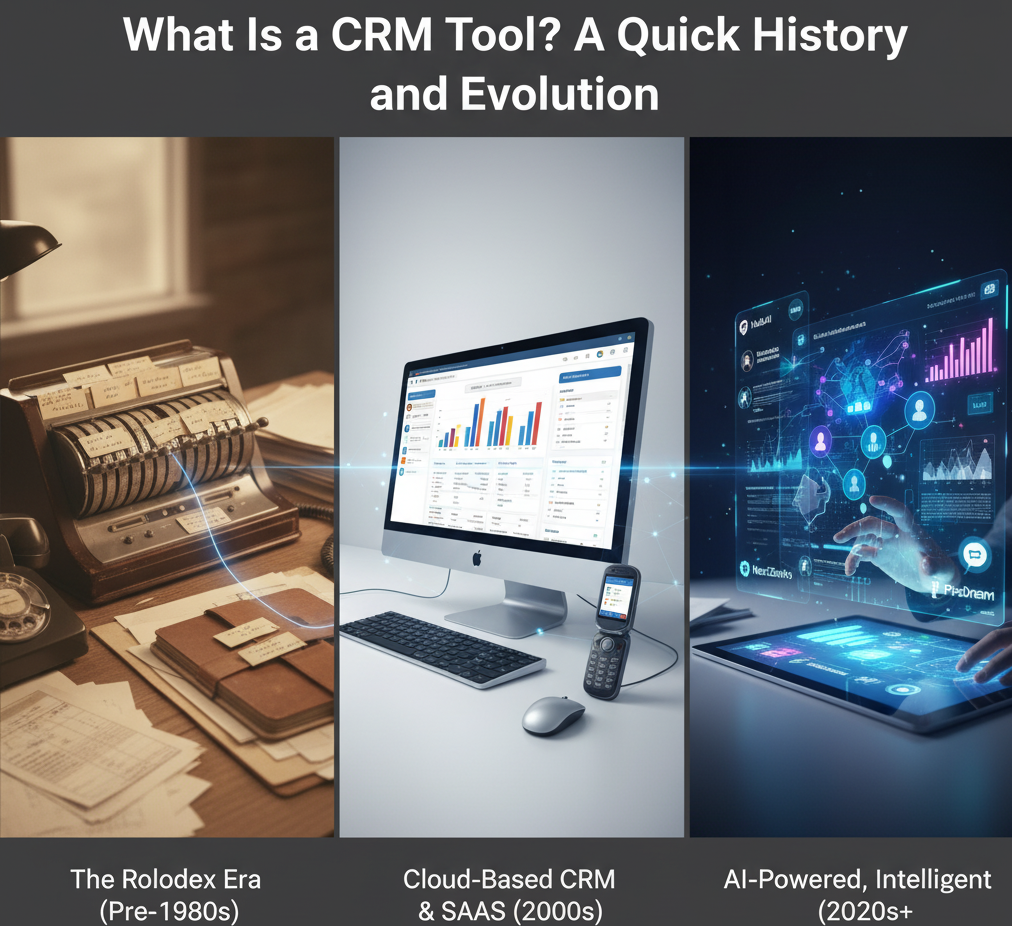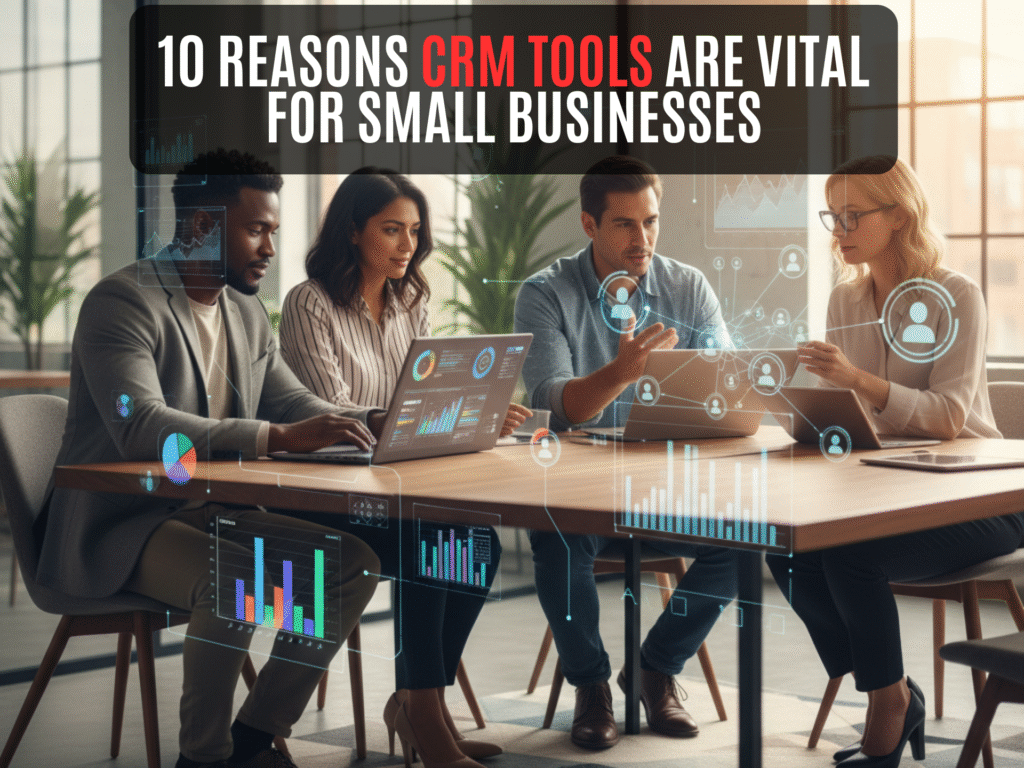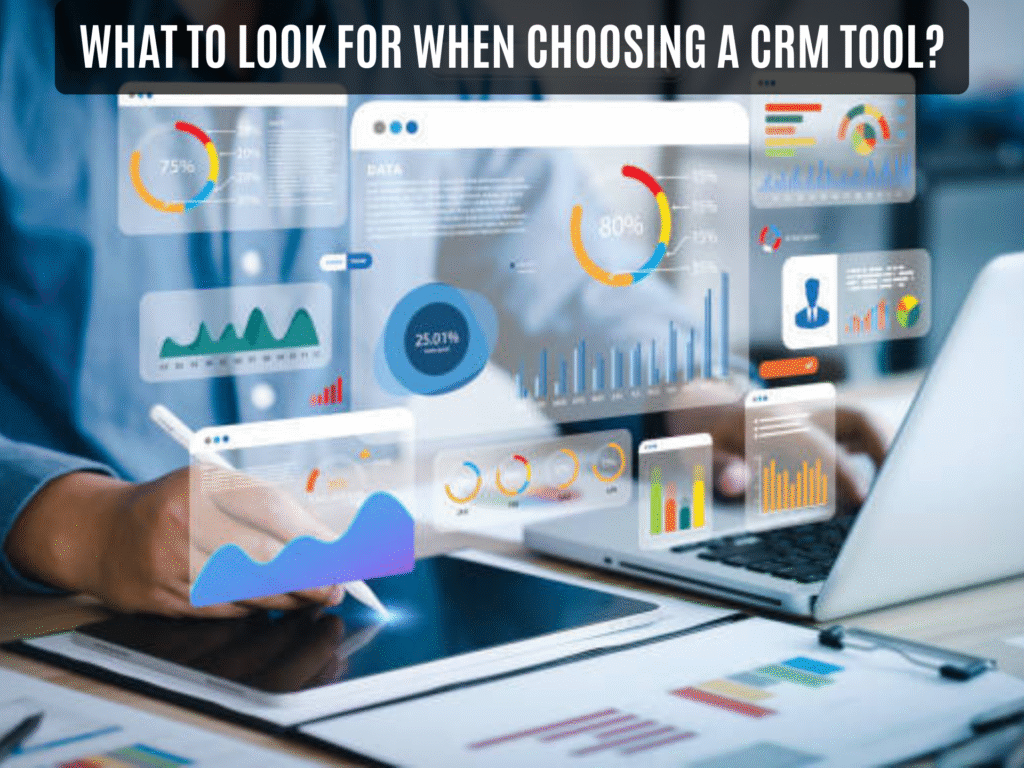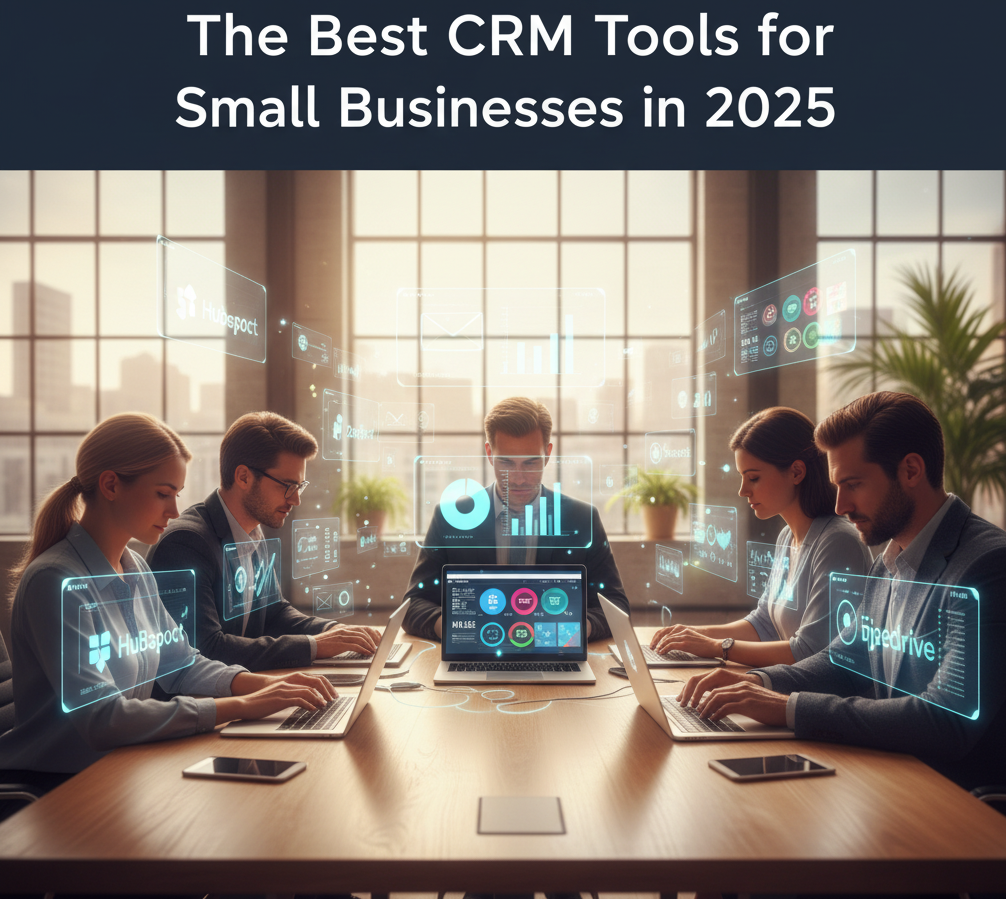Welcome to our blog. A space dedicated to helping you improve your daily life, personal lifestyle, Business, personal finance, and keeping updated with current trends.
Here are some of our popular posts: Top 10 best website builders, Best super foods for a healthy lifestyle, the unlimited list of free productivity apps, Best freelance site to find remote jobs, top 10 productivity hacks for entrepreneurs , 10 best side hustles to make extra money online, best online courses for learning digital skills, top 10 best free coding website
With the advent of new technology and an increasing number of entrepreneurs over the years, business has become a brutally competitive environment, and small businesses face a significant challenge: maintaining strong customer relationships while also managing sales, marketing, and support. When you are trying to juggle everything at once, it’s easy for things to fall through the cracks. That’s exactly where the best CRM tools for small businesses come in. CRM stands for Customer Relationship Management, and it’s one of the most valuable assets any small business can invest in. These platforms help you organize, automate, and optimize every customer interaction. They turn leads into loyal customers and chaos into clarity.
Whether you’re a solo entrepreneur handling multiple clients or leading a growing team, the right CRM tool can be your secret weapon for staying efficient, saving time, and scaling with confidence. Let’s explore the best CRM tools for small businesses, why CRM tools have become the superpower behind successful small businesses, and how you can use them to grow in 2025 and beyond.
What Is a CRM Tool? A Quick History and Evolution

CRM tools are software platforms that help you manage customer data, track interactions, and nurture relationships from start to finish. They give you one place to store all your customer details, sales progress, and communication history so that nothing gets lost.
To truly understand how far CRMs have come, it’s worth looking at their evolution.
In 1986, a company called ACT! launched one of the very first digital contact managers. This was a simple tool designed to help salespeople keep track of names, phone numbers, and meeting notes. It laid the foundation for what would later become modern CRM systems.
By 1993, Siebel Systems introduced enterprise-level CRM solutions that focused on large corporations. These were powerful but often expensive and complicated, making them hard for small businesses to use.
Then came 1999, a turning point. Salesforce revolutionized the industry by launching a cloud-based CRM system. Instead of installing bulky software, users could now access their customer data online from anywhere. This made CRM tools more affordable and flexible for businesses of all sizes.
The 2010s saw another big shift. CRMs began to integrate marketing automation, data analytics, and mobile apps. Businesses can now run email campaigns, track customer behavior, and monitor performance in real-time.
Today, in the 2020s, CRM tools have become even smarter. They use artificial intelligence to predict customer behavior, automate follow-ups, and offer real-time insights. Many even come with voice assistants, social media integrations, and e-commerce features, allowing small businesses to compete on the same level as big brands.
In 2025, CRM tools are no longer just digital address books, but they are powerful ecosystems that connect sales, marketing, and customer service into one smooth experience.
10 Reasons CRM Tools Are Vital for Small Businesses

CRM tools have moved from being optional to essential for small businesses. Here’s why:
#1. Centralized Customer Data: All your customer information—contacts, conversations, purchase history, and notes is stored in one easy-to-access place. This eliminates confusion and saves time that would otherwise be wasted digging through emails or spreadsheets.
#2. Improved Customer Service: A CRM helps you deliver better, faster, and more personalized support. You can track every customer issue and ensure nothing is overlooked. When customers feel heard and valued, they stick around.
#3. Sales Pipeline Management: Instead of guessing where each deal stands, a CRM lets you see your entire sales pipeline at a glance. You can visualize leads, track progress, and identify what needs attention to close deals more efficiently.
#4. Marketing Automation: Many CRM tools come with built-in marketing features. You can schedule email campaigns, send targeted offers, and nurture leads automatically based on customer behavior.
#5. Task and Follow-Up Reminders: CRMs take care of reminders and notifications, helping you stay organized. You’ll never forget a follow-up call, meeting, or proposal again.
#6. Team Collaboration: With all data centralized, your team can easily share updates, assign tasks, and work together. Everyone stays on the same page, no matter where they are working from.
#7. Reporting and Analytics: Numbers don’t lie, and a good CRM gives you the data you need to make smarter business decisions. You can track key performance indicators, analyze trends, and forecast future sales.
#8. Customer Segmentation: Not all customers are the same. CRMs let you group customers based on behavior, location, or spending habits, so you can send more personalized messages and improve engagement.
#9. Mobile Access: Today’s business world is mobile. With CRM mobile apps, you can manage customer relationships on the go, check updates, and respond to clients instantly.
#10. Scalability: As your business grows, your CRM grows with you. You can start with the basic features and add more advanced tools as your needs evolve.
What to Look for When Choosing a CRM Tool?

Not all CRM tools are built the same. The best CRM tools for small businesses share some key qualities that make them effective and user-friendly. Here’s what you should consider before committing to one.
#1. Ease of Use: A good CRM should be simple and intuitive. If you or your team need weeks of training to figure it out, it might not be the right fit.
#2. Affordability: Budgets are often tight for small businesses, so look for tools that give great value without breaking the bank. Many CRMs offer free or low-cost plans that are perfect for startups.
#3. Customization: Every business is unique. Choose a CRM that allows you to customize dashboards, workflows, and fields to match your operations.
#4. Integration: The best CRM tools integrate with the apps you already use, like Gmail, Outlook, social media, and accounting software. This keeps your systems connected and data consistent.
#5. Automation Features: Look for automation options that reduce manual work—such as automated follow-ups, task creation, and lead scoring.
#6. Mobile Access: If you’re often on the move, make sure your CRM has reliable Android and iOS apps for mobile access.
#7. Security: Your customer data is valuable, so your CRM should offer top-notch security with encryption, regular backups, and compliance with privacy laws.
#8. Support and Training: Choose a CRM that offers strong customer support and helpful onboarding resources. It’s essential to have assistance when you need it.
#9. Scalability: As your business expands, you’ll need more users and advanced features. Ensure the CRM can grow with you without forcing you to switch platforms later.
#10. Trial Options: Always test before you buy. Most CRM platforms offer free trials or freemium plans so you can explore the interface and decide if it suits your needs.
Top 10 Best CRM Tools for Small Businesses in 2025

If you’re ready to get started but not sure which CRM to pick, you’re not alone. With so many options available, choosing the right one can feel overwhelming. To help you out, here’s a detailed look at the Best CRM Tools for Small Businesses in 2025, chosen for their affordability, functionality, and ease of use.
Each of these platforms offers unique benefits that can help you organize your customer relationships, streamline your workflow, and grow your business efficiently.
#1. HubSpot CRM
If there’s one CRM tool that truly stands out for small businesses in 2025, it’s HubSpot CRM. It’s designed to make managing sales, marketing, and customer support incredibly simple, all from one clean and organized platform. Whether you’re just starting out or already running a small team, HubSpot gives you everything you need to stay on top of your customers and grow your business without the stress of juggling multiple tools.
One of the biggest reasons small businesses love HubSpot is that it offers a generous free plan packed with essential features. You can manage contacts, track emails, and monitor your sales pipeline—all at no cost. The interface is intuitive and easy to navigate, even if you’re completely new to CRM systems. It integrates seamlessly with popular apps like Gmail, Outlook, and Shopify, so you don’t have to constantly switch between platforms to get work done.
What makes HubSpot CRM truly shine is how effortlessly it scales with your business. You can start with the free version and, as your needs grow, upgrade to its paid plans for access to advanced features like marketing automation, detailed analytics, and customer service tools—all without having to migrate to another system.
The platform’s visual sales dashboard gives you a clear, real-time view of your deals and progress. You can use prebuilt email templates, set up automation to save time, and connect your social media accounts or Google Workspace for smoother workflow management. It’s like having a digital assistant that keeps your entire customer journey organized from the first touchpoint to the final sale.
For small businesses watching their budgets, HubSpot CRM offers excellent value. Its free tier can easily support unlimited users, and even the paid plans remain affordable, starting from just $50 per month per user. In short, HubSpot CRM is more than just software—it’s a partner that helps you build meaningful customer relationships and grow your business confidently.
#2. Zoho CRM
Zoho CRM is the go-to choice for small businesses that want a mix of automation, customization, and affordability. It’s designed for business owners who want to streamline their operations without spending a fortune on complicated software. Zoho makes managing leads, tracking customer interactions, and automating workflows incredibly easy, no matter how large or small your team is.
What sets Zoho apart is its flexibility. You can tailor almost everything to match the way your business works. From custom fields and dashboards to automated workflows, Zoho gives you complete control. It even comes with an AI-powered assistant called Zia, which helps predict sales trends, identify promising leads, and provide insights based on your data.
Zoho CRM also supports multiple communication channels, allowing you to interact with customers through email, phone calls, social media, and even live chat—all from one dashboard. Whether you’re following up on leads or nurturing long-term relationships, Zoho keeps every touchpoint connected and organized.
It’s mobile-friendly, so you can manage your business on the go, and it integrates perfectly with other Zoho tools or third-party apps like Slack, Google Workspace, and Mailchimp. With pricing that starts at just $14 per month per user, Zoho CRM delivers serious value for small businesses looking to grow smarter without breaking the bank.
#3. Freshsales by Freshworks
Freshsales is the modern small business owner’s dream come true. It’s powered by Freshworks’ smart AI assistant, Freddy, who helps you automate repetitive tasks, score leads, and focus on closing deals faster. It’s an all-in-one CRM built for efficiency and ease of use.
Freshsales stands out because it simplifies complex sales workflows. You can manage your entire customer lifecycle—from the first contact to deal closure—on one screen. It comes with built-in phone and email features, which means you can communicate with clients directly from the platform without switching between different tools.
The AI assistant, Freddy, gives you real-time insights into which leads are most likely to convert, helping you prioritize your time and energy. It also predicts sales outcomes based on your historical data, making planning easier and smarter.
Freshsales’ clean, user-friendly interface ensures that even beginners can get up and running quickly. Plus, with automation tools, customizable pipelines, and detailed analytics, you can track performance and make data-driven decisions effortlessly.
For pricing, Freshsales starts at $15 per month per user, going up to $69 for more advanced features. It’s perfect for small businesses that want powerful automation without complexity.
#4. Pipedrive
If you love visual tools and prefer simplicity, Pipedrive might be your perfect CRM match. It’s designed for teams that focus heavily on sales and want a clear picture of where every deal stands. Instead of cluttered lists or spreadsheets, Pipedrive uses a drag-and-drop interface that makes managing your sales pipeline almost fun.
Every stage of the sales process is displayed visually, allowing you to see exactly where each lead is, what needs attention, and which deals are ready to close. This makes it ideal for entrepreneurs who want an easy, bird’s-eye view of their business.
Pipedrive also includes features like email tracking, scheduling, and automation, helping you stay organized without spending hours on manual work. You can generate reports, analyze sales performance, and integrate the platform with your favorite tools like Zoom, Google Calendar, or Trello.
Its mobile app ensures you can manage deals even when you’re out of the office, giving you the flexibility modern business demands. Pricing starts at $14 per month per user and can go up to $99 depending on the plan. For sales-driven teams, Pipedrive delivers simplicity and power in perfect balance.
#5. Salesforce Essentials
Salesforce Essentials brings the power of enterprise-level CRM to small businesses. It’s a simplified version of the globally recognized Salesforce platform, built with smaller teams in mind. You get access to the same reliable tools trusted by Fortune 500 companies—but at a price and complexity level suited for small businesses.
The platform helps you manage customer interactions, track leads, automate sales tasks, and deliver excellent service—all from a single dashboard. It’s designed to help you understand your customers better and build meaningful relationships that last.
One of the biggest advantages of Salesforce Essentials is scalability. As your business grows, you can easily upgrade to more advanced Salesforce products without starting from scratch. It also integrates with hundreds of business tools, from email clients to accounting software.
Salesforce is known for its powerful analytics and reporting features, giving you valuable insights into customer behavior and business performance. With pricing starting at $25 per month per user, Salesforce Essentials offers small businesses a strong foundation to scale confidently.
#6. Monday Sales CRM
Monday Sales CRM is the perfect blend of project management and customer relationship management. It’s designed for small teams that want to keep everything—from sales to daily tasks—in one place. Its colorful, easy-to-use interface makes it simple to track leads, assign tasks, and monitor progress at a glance.
Unlike traditional CRMs, Monday Sales CRM lets you customize workflows to fit your unique business needs. You can create automated actions, visualize deals with timelines or boards, and collaborate easily with teammates. It feels less like software and more like a productivity partner.
What’s great about Monday is its versatility. Whether you’re tracking new leads, following up with clients, or managing after-sales projects, you can do it all without switching tools. It integrates with platforms like Slack, Google Drive, and Outlook, making your workday smoother.
With plans ranging from $10 to $30 per month per user, Monday Sales CRM is affordable, efficient, and perfect for businesses that want simplicity with a creative touch.
#7. Nimble
Nimble is built for business owners who value relationships over transactions. It’s a social CRM that helps you connect with customers in a more personal way. If your business thrives on networking, social selling, or influencer collaborations, Nimble gives you everything you need to manage it all from one dashboard.
It automatically collects contact information, social media profiles, and communication history, helping you understand your clients better. Nimble also integrates directly with Gmail, Outlook, and social networks, so you can track and engage with prospects wherever they are.
What makes Nimble unique is how it blends CRM with social intelligence. You don’t just see contact details, you see a full picture of who your customers are, what they care about, and how best to reach them.
It’s easy to use, affordable, and built for professionals who want smarter communication without complex systems. The price is $24.90 per month per user, making Nimble a solid choice for businesses that rely heavily on personal relationships.
#8. Insightly
Insightly is the all-in-one CRM for growing businesses that want more than just contact management. It combines CRM, marketing automation, and project management under one roof. This means you can handle everything—from lead generation to project delivery, without switching platforms.
With Insightly, you can manage sales pipelines, track emails, and even design marketing campaigns. The platform also allows you to assign tasks, set deadlines, and monitor project progress, making it a favorite for small teams that wear multiple hats.
Insightly integrates with tools like Google Workspace, Microsoft 365, and Mailchimp, so everything stays connected. It’s easy to navigate and highly customizable, allowing you to create dashboards and workflows tailored to your business.
For small businesses ready to grow, Insightly offers enterprise-grade power at a reasonable cost, starting at $29 per month per user and going up to $99 for more advanced plans.
#9. Less Annoying CRM
True to its name, Less Annoying CRM is built for simplicity. It’s a refreshing option for solo entrepreneurs and small businesses that just want to keep things organized without all the extra noise. You don’t need to be tech-savvy to use it; everything is clean, clear, and straightforward.
The platform focuses on what matters most: managing contacts, tracking leads, and staying on top of follow-ups. There are no confusing features or complicated menus, just the essentials done right. It’s perfect for freelancers, consultants, and small teams who want to get started quickly and see results immediately.
Setup takes just a few minutes, and customer support is known for being fast and personal. There’s no upselling or surprise charges, just a flat rate of $15 per month per user. If you want a no-nonsense CRM that works right out of the box, Less Annoying CRM lives up to its name
#10. Capsule CRM
Capsule CRM is a lightweight yet powerful tool for freelancers and small teams who value simplicity and organization. It’s clean, efficient, and focuses on helping you build better customer relationships without unnecessary complexity.
With Capsule, you can easily manage contacts, track sales opportunities, and record every customer interaction in one place. The interface is minimal and easy to navigate, so you’ll never feel overwhelmed. It integrates smoothly with tools like Gmail, Outlook, and Xero, keeping your communication and financial data in sync.
One of the standout features of Capsule is its tagging and filtering system, which helps you quickly find contacts and categorize deals. It’s ideal for small businesses that want clarity and control without the learning curve of more complex CRMs.
Capsule offers a free plan for small teams and paid options starting at $36 per month per user. It’s simple, reliable, and does exactly what a CRM should—keep your customer relationships organized and growing.
These ten CRM tools prove that small businesses have more power and choice than ever in 2025. Whether you want automation, simplicity, or social connection, there’s a CRM that fits your needs perfectly. The key is to choose one that feels natural to use, saves you time, and grows with your business goals.
Conclusion: Best CRM Tools for Small Businesses in 2025
Small businesses can’t afford to rely on spreadsheets and guesswork to manage customers. The market moves too fast, and customers expect personalized attention. CRM tools bridge that gap. They help you organize your workflow, save time, and make data-driven decisions.
Here are some of our popular posts: Top 10 best website builders, Best super foods for a healthy lifestyle, the unlimited list of free productivity apps, Best freelance site to find remote jobs, top 10 productivity hacks for entrepreneurs , 10 best side hustles to make extra money online, best online courses for learning digital skills, top 10 best free coding website
Think of your CRM as a digital assistant that keeps track of every conversation, reminds you of follow-ups, and helps you understand what your customers need before they even ask. It’s more than a database; it’s a growth engine.
When choosing from the best CRM tools for small businesses, focus on what aligns with your goals. Start small if needed, but pick a tool that can scale with your growth. Don’t worry about having every feature on day one. What matters most is usability, integration, and the ability to deliver real value.
Here are a few quick tips to make the most of your CRM: Start with a free trial to test the platform before committing. Integrate it with your existing tools, like email and social media. Avoid overpaying for features you don’t need; upgrade only when it’s worth it.
The best CRM tools for small businesses are more than just software; they are growth partners. They help you build stronger relationships, close more deals, and deliver unforgettable customer experiences. So if you haven’t invested in a CRM yet, now is the perfect time to turn this technology into your small business superpower.
If you enjoyed this guide, explore our blog for more reviews, insights, and strategies to help your small business thrive. Let’s grow smarter, together.


